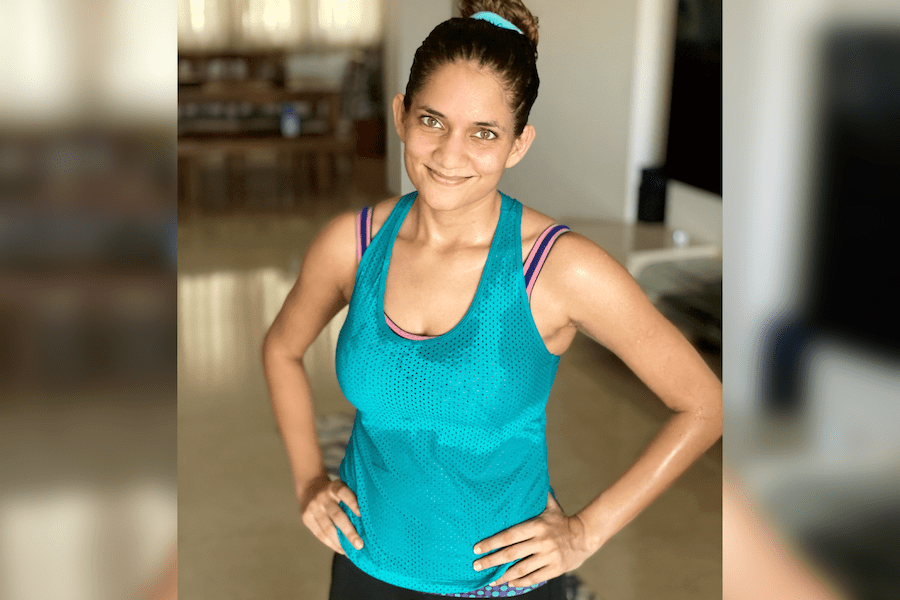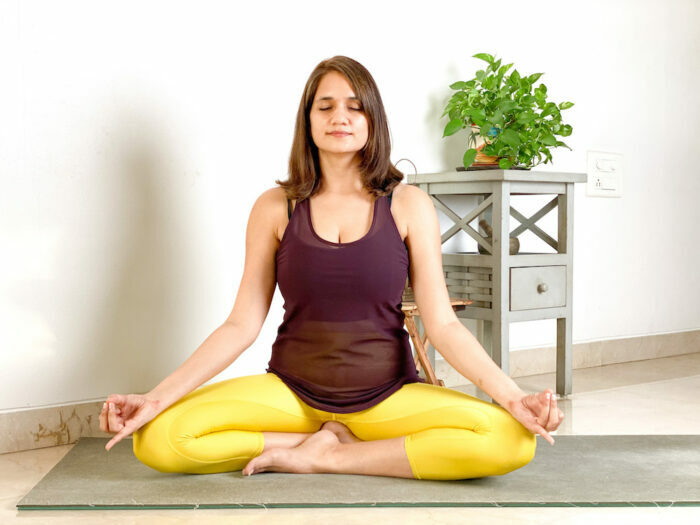I chanced upon a reel the other day where a mental health practitioner was sharing how exhausting it is to deal with other people’s expectations. She shared how she’s heard statements like, “Oh you’re a therapist, you must never get angry/emotional/sad”. I instantly related with it as people carry similar extreme notions about most wellness professionals, including Yoga. There’s an instant assumption that just because someone practices yoga they never experience extreme emotions–that is not at all true!
This stems from a very ALL or NOTHING approach that has been fed to us repeatedly by media and society. And when you are not realistic in your expectations three things happen:
- You will undermine people who are honest and open about their feelings, and are willing to share their process.
- You will end up aligning to someone who chooses to project a flawless but false personality that never succumbs to any human weakness.
- And worse still, in trying to be as perfect as them you may severely compromise your mental health and end up with a lifestyle that is hard to keep up.
So, I thought I would use this blog today to demystify some of those preconceived notions and give a little insight into what a Yoga practitioner’s life (mine in this case) is really like and what are some of the pre-conceived notions that I come across.
Why are you doing HIIT, Yogis don’t exercise or go to the gym!

For me physical practices have two goals – exercise and mindfulness. Personally, I enjoy doing exercises like aerobics, or weight training. I was into sports and athletics as a child and I continue to enjoy these activities. They’re great for your health and in no way contradict your yoga practice. And I use Yoga mostly as a mindfulness practice to manage stress. Therefore, my personal practice has greater focus on slow movement, long holds with pranayama and meditation. When it comes to teaching, I teach different forms and intensities of yoga.
Also, for many people Yoga itself is a complete form of exercise, which is also fine. Many people only get some physical movement because they’ve learnt to practice yoga or do sun salutations daily. There’s a tendency to judge them because we feel their yoga practice is not as ‘mindful’ as ours because they’re practicing it differently. People come to yoga for many different reasons, and eventually most people will gravitate towards what is right for them. Let their journey unfold.
You must have a very strict yoga routine?
No. I tend to be very structured, organised, methodical, and strict with myself in my work and everyday life. Therefore, I use Yoga to diffuse and counterbalance that energy. That’s why my yoga practice is intuitive, free and flexible. It’s designed to charge me up, and balance out my personality traits. This is how I find the balance between right and left brain or the yin and yang aspects of myself.
Do you follow any rituals?

No. I follow my own path and prefer a more minimalistic approach to spirituality.
You must be all Yoga, Yoga, Yoga all the time?
No, it is just ONE element of my 24-hour daily life. It’s as important as the food I cook, as important as spending time with my husband, as important as calling my mom, as important as sitting and playing a word game to unwind. It’s just another part of the day. And my life comprises of a lot of different elements, it’s multi-faceted.
I do not live to practice yoga, I practice Yoga to live my life well.
I must practice yoga for many hours?
My physical practices range from anywhere between 15 mins to 90 mins generally. It’s not fixed. Some days I feel the need for an intense asana practice, other days I feel the need for a deep stretch and some other days I spend 30 mins on the mat doing deep breathing in Shavasana. I practice yoga to have a productive and healthy life. And this can be achieved in an hours’ worth of practice that includes Asana, Pranayama and Meditation.
You must be very strict with food – what is your ‘yogic diet’ like?

I eat what I want, when I want. Eating intuitively has been immensely helpful for me as its less stressful and time consuming. Dieting used to take up a lot of mind space and would never feel good. Now eating is an effortless activity. If I feel like having it, I will, if I don’t feel like having it, I won’t. Doesn’t matter if it’s a cake or a salad. What is more important here is moderation. I may even have a drink occasionally, and hold no judgement against that. I am helped by the fact that in general I don’t get addicted or overindulge in anything.
Can yogis read fiction or watch movies?

I enjoy movies. And I love to talk and read about philosophy, human nature, politics, jokes and historical fiction. Traditionally yogis lived a very stern life hidden in the mountains, and did not have families. They followed a very difficult path to attain enlightenment by manipulating the body. To understand more, you can read the experiences of Theos Bernard. My objective with yoga is more humble – to manage stress and live a balanced life. Therefore, as we start translating the yogic texts and applying them to daily lives, let’s not forget that we are householders. You cannot blindly apply those rules to yourself without also changing your entire life situation.
Do I have a guru?
No. I have never had a good experience with the guru community. And I have personally witnessed a lot of exploitation and predatory behaviour in the so-called spiritual or yoga gurus. Since Yoga guides us towards the path of personal development, I have over time found my own way to continue this journey with other forms of external support. Such as listening to wise people around me, being open to feedback, exploring therapy, and reading good philosophy from Bhagavad Gita to Buddhism to Stoicism. Philosophy helps me introspect and I use it to actively work towards being a balanced human being.
I must be so Zen with all that yoga, never getting angry/sad/upset?
Nothing could be further from the truth. I get upset, or angry depending on the circumstances and their severity. But without yoga I would have never known how to come out of these experiences by processing them, learning from them and moving on.
I’m no different from another human being, other than the fact that I have some extra stuff in my stress management toolkit and that I am very willing and happy to work on myself.
Can you put your leg behind your head?
I can. But then after a point it starts hurting my lower back. Also, there’s no point in doing that as I am not a 15th century Hatha Yogi. I have found great value in using Asanas to diffuse stress and to then use that state of mind to meditate. A very simple practice can also help you achieve that. One of the biggest myths of modern-day yoga world is the need to force the body into postures that are not really relevant. To push our joints into extreme ranges of motion that we won’t ever use in our everyday life. There’s nothing wrong in pursuing postures, but you may miss the woods for the trees by thinking that it will make you calmer or happier.
I live better, eat better, feel happier and more charged up because I have learnt to use tools like Yoga, Ayurveda and Philosophy to improve my quality of life. Not my ‘quality of practice’.
I just wanted to lay it out here for anyone who needs to breakaway and look at Yoga the way I do. Don’t let expectations weigh you down. Be open about Yoga, learn to accept multiple categories of yogis – those who can do beautiful postures, those who can mediate for hours, those who are working on past trauma, those who are learning to balance their work and family, those who are learning to be better human beings. There are all types of yogis.







